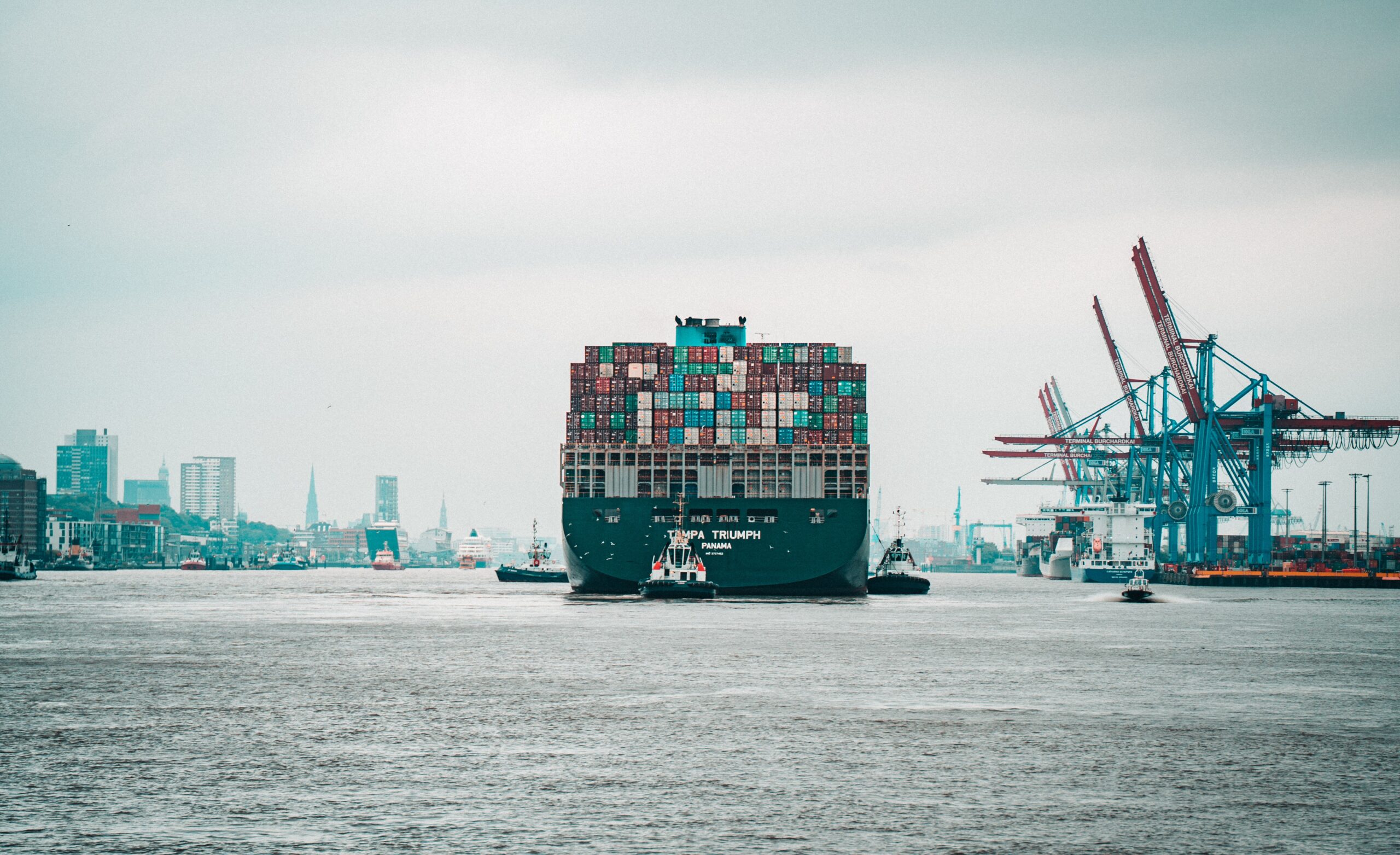Finding a practical approach to supply chain sustainability
Feb 27, 2023
Scroll to find out more
Feb 27, 2023
Scroll to find out more

Sustainability is an increasingly important topic for every industry, but recent years have seen increasing focus on supply chains in particular. With regulators implementing new measures such as IMO 2023 setting strict targets for emissions, businesses are also facing their own internal and external pressures to adapt. Notably, sustainability is now being considered in the same breath as core metrics such as growth and profit, even in challenging economic conditions.
Supply chain is a natural focus for businesses looking to improve their operational performance, being responsible for 90% of an organisation’s greenhouse gas emissions. While companies have had a lot on their plate recently, 2022 research found that 80% report that Covid-19 had no impact or increased their supply chain sustainability commitments. Meanwhile, 23% reported an increase in pressure from investors to improve their sustainability performance.
To find out more about how to improve supply chain sustainability practices, we sat down with Charlotte Plumford, Head of Sustainability at Vivobarefoot on our podcast Freight to the Point. Vivobarefoot recently celebrated their 10 year anniversary, operating as a B-corp with sustainability as a founding principle in their quest to make footwear works with nature, both for the wearer and the planet at large.
As a business that has been thinking about these things for 10 years, Vivobarefoot has had a front row seat to the changing attitudes towards environmental responsibility and initiatives. In the last decade, as the impact of climate change has become more tangible, consumer behaviour reflected the increased awareness among individuals of their own responsibilities.
‘We have started to see quite a large scale shift in people wanting more sustainable products and wanting to know more information about where their products are coming from, what materials they’re using, and asking more questions of brands and organisations.’ says Charlotte. This approach is mirrored in efforts from governments and investors, with ESG considerations becoming a common, if as yet non-uniform, presence in high-level business conversations.
The challenge now is how to translate the public pressure and internal goodwill into practical actions. An increasingly popular method is building these considerations into the business itself through a B-Corp, which Vivobarefoot adopted in 2020.
B-Corps are businesses that meet higher standards of social and environmental responsibility and performance, accountability, and transparency. Status is only granted after a rigorous assessment process that evaluates its impact on its workers, customers, community, and the environment. “For us, B Corp is a holistic framework which allows us to look at sustainability, look at how we’re operating, and it gives us a roadmap to continuously improve,” says Charlotte.
Like any strategy change, implementing sustainability requires implementing a new set of criteria for making decisions. This can be challenging for established businesses that have primarily focused on shareholder value; changing outlook adds new factors that can complicate traditional business metrics.
‘[Sustainability means] making tough calls and tough decisions,’ says Charlotte. ‘Trying to limit and eliminate air freight as much as we possibly can in terms of distribution, making tough calls on materials – sometimes sustainable materials are more expensive than their traditional counterparts.’
However, many businesses lack the visibility or control to even start making these decisions – which is why sustainability has to start with reliable data.
“Across the industry, there is a fundamental lack of transparency. It’s extremely opaque when you’re getting down to raw material level. And for us, that’s a big problem, because we want to be understanding what our impact is all across the areas that we’re working with.” says Charlotte.
In our work with Vivobarefoot, we’ve seen the value of a three-step approach:
From a supply chain point of view, Zencargo has worked in collaboration with Pledge, the carbon measurement and removal API-oriented platform, to provide Vivobarefoot with SKU-level footprint visibility across all shipments and help them make data-driven decisions for improving supply chain sustainability.
We believe that approaches like those pioneered by Vivobarefoot are going to play an ever greater role in commercial success and that businesses that fail to do so will be at a disadvantage and may not survive in the long run.
In today’s market, sustainable supply chain management offers opportunities for innovation and engagement with customers and partners. By broadening their outlook and embracing sustainability, businesses can move beyond best practices and actively shape their industry while building a positive relationship with customers, investors and regulators.
To find more sustainable supply chain practices and how they can help you lead the way into a more responsible future, get in touch with one of our experts.


To find out more, book a free consultation with one of our experts today.

If you’re looking for a partner who can support you through 2024, and beyond, w...